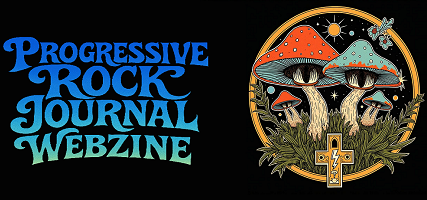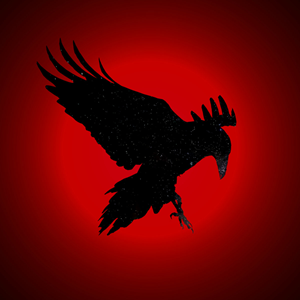In the vast landscape of contemporary instrumental music—where Progressive Rock, Metal, and Cinematic soundscapes constantly intertwine—Jessel’s Ghost stands out as one of Spain’s most intriguing independent voices. Entirely self-produced and shaped by the creative vision of MMS, the project has steadily evolved over the past year,
culminating in the release of its new full-length Vertigo, published independently on November 14, 2025. The album, available now on Bandcamp, presents an intimate yet expansive journey through atmosphere, weight, reflection, and motion. Across eight meticulously crafted tracks, Vertigo blends textured guitar lines, dynamic rhythmic layers, and immersive melodic phrasing, carving out a sonic world where tension and release coexist with remarkable balance. It’s a natural successor to Vanishing Point—released earlier in 2025—yet it also marks a clear step forward: the writing is sharper, the emotional scope wider, and the production more confident. For an artist who handles composition, arrangement, recording, mixing, and mastering alone, the result is strikingly polished. “Vertigo” feels like the soundtrack to an inner odyssey—one shaped by instability, clarity, and the sensation of standing on the edge of something transformative. In this interview, we explore the roots of Jessel’s Ghost, the creative process behind the new record, and what the future may hold for a project that continues to grow in vision and ambition.
Let’s start from the beginning: How and when did Jessel’s Ghost come to life? What inspired the project name, and what pushed you toward an instrumental approach?
Jessel’s Ghost was born from the ashes of another solo project, a project I wanted to approach in a more polished and professional way. I released my first album, Vanishing Point, in April of this year. The tracks were already written, so it was just a matter of re-recording them and, in short, improving them. The name comes from a character in The Turn of the Screw, which is one of my favorite books. The instrumental approach is mostly for practical reasons, as I don’t sing. It’s also because I’ve always enjoyed instrumental albums.
The Bandcamp notes credit MMS for everything—writing, recording, mixing, and mastering. How important is full creative control for you, and what advantages (or challenges) does working completely alone bring?
Yes, I did everything myself, including the graphic work (the cover and all the visuals). I’m a bit obsessive about details, and I have a clear idea of the direction of each track, so I feel comfortable doing things my own way.
The biggest drawback is that you risk losing perspective on what you’re doing — sometimes you miss having someone with fresh ears who can listen without a biased viewpoint.
Which artists or genres shaped your musical identity? Do you draw more from Progressive Rock, Instrumental Metal, Cinematic Music, or something entirely different?
I listen to a bit of everything — I think every genre has talented people, so I don’t close myself off to anything. I started by listening to my father’s ’70s rock records (Creedence, Led Zeppelin, Deep Purple, Pink Floyd, Can), then I moved on to metal (I really like ’80s thrash metal). I also love instrumental guitar albums (Vai, Govan, etc.), and I enjoy krautrock, space rock, post-rock, film scores… Basically, I listen to all kinds of music, although what
attracts me the most is progressive rock.
Looking back at “Vanishing Point” (released in April 2025): How would you describe the evolution that leads from that album to “Vertigo“?
I’ve tried to make the sound richer and more expansive. I included a couple of more aggressive tracks (Plague, Vertigo), although I think the foundations were already well established on Vanishing Point, with mid-tempo sections, acoustic parts, and so on.
The meaning behind the title: Why “Vertigo”? Is there a conceptual thread running through the album, either emotional or narrative?
I like the concept of movement behind the word—of overwhelming passion and surprise. On a more down-to-earth level, I’m a big film lover, and Vertigo is one of my favorite movies, so there’s a bit of that as well. In fact, the cover design is inspired by one of the posters from that film.
How do your tracks typically begin? Do you start from guitar riffs, atmospheres, rhythmic ideas, or melodic fragments?
Most of the time, everything starts with a riff or a melodic line. Then I sit down with the guitar and start writing whatever comes out — it’s a very natural process that just flows. As I write, new ideas keep coming to me. It’s quite an organic process.
Among the eight compositions (Sonar, Vertigo, Nebula, Plague, Reflection, Antares, Jade, Lunar II), are there pieces that you feel particularly attached to or proud of? What makes them special?
Lunar II (there’s also a track called Lunar on Vanishing Point) is the most special one because it’s dedicated to a loved one who is no longer here. I think Sonar creates a very interesting soundscape — I like telling stories through my songs and having them follow a sort of narrative thread, and I believe that worked well in Sonar. Honestly, I’m proud of all the tracks. Others were left behind because they didn’t work, and I think these ones do.
The album has a Cinematic, Atmospheric quality. What kinds of techniques or tools did you rely on to shape its textures and dynamics?
Yes, I like giving it an atmospheric texture — you described it perfectly. I enjoy adding layers with synthesizer textures, organs, and so on, which subtly shape the sound. Some of those layers might not be clearly noticeable, but they contribute to the overall feel, and in the mix you can tell something is missing if you mute them. I initially started doubling the guitar solos with keyboards, but I eventually dropped the idea to keep a purer guitar sound. I also like harmonizing certain parts in octaves — it’s extremely simple and very effective.
Were there moments during the making of “Vertigo” where you had to abandon or drastically rethink parts of the material?
It’s a process that takes months, and I don’t stress about it. Vertigo was practically finished two or three months ago, but I let it sit so I could listen to it with fresh ears (as I mentioned before). Reflection had a more rhythmic ending, but I cut it completely — I couldn’t get it to sound right, and I think it’s better to remove parts that don’t work.
Feedback and reception: What reactions have you received so far from early listeners or fellow musicians? How do you feel about the way people connect with your music?
The feedback I’ve received has been positive, but it’s also true that for an unknown musician, it’s very difficult to reach a wide audience.
Live performance: Do you envision bringing Jessel’s Ghost to the stage? If so, would it take the form of a solo performance, a full band, or a hybrid setup?
I don’t have any plans to perform live. If I were to do it, I’d like it to be with a band, but that would take a lot of time: finding the right musicians, preparing the songs… Honestly, I see it as quite complicated.
What are, in your view, the main advantages and difficulties of releasing your work independently? Do you enjoy the freedom, or do you ever consider label support?
The advantage is that I do everything my way, obviously, and I don’t set deadlines or feel any kind of pressure. I enjoy the freedom — making my music at my own pace and letting it emerge naturally. The hardest part is getting visibility and sparking people’s interest in my music.
Since you oversee every aspect of the production, do you ever feel drawn toward collaborating with other musicians, producers, or visual artists?
In fact, I’m already collaborating with another musician on a side project, Kopilott. It’s a project more focused on krautrock and psych. We create the music together, and he handles all the production (mixing, mastering) while I handle the guitars. We’ve recorded three albums, which can be found on Bandcamp. Some tracks on Kopilott’s albums were
originally composed for my personal project, so you can hear two versions: the Jessel’s Ghost one and the Kopilott one.
What does Jessel’s Ghost represent for you on a personal level? Is it a creative outlet, an introspective tool, or something else entirely?
It may sound cliché, but it’s a way for me to express myself. As a child I loved drawing, and now music has become my means of expression. I also love the creative process — building a track from a single idea feels almost magical to me.
What can listeners expect from the future of Jessel’s Ghost? Are you exploring new sounds, planning further releases, or considering new formats such as EPs, soundtrack work, or live sessions?
I already have the third album quite far along: the tracks are composed, and many of the guitar parts are already recorded. After that, I’d like to make a more acoustic record — possibly an EP.
With “Vertigo,” Jessel’s Ghost delivers a record that feels both intimate and expansive, sculpted with precision yet guided by instinct. It’s a release that refuses to rely on sheer technicality; instead, it uses clarity, atmosphere, and emotional pacing as its guiding principles. The result is an album that unfolds like a narrative without words—inviting
listeners to inhabit its shifting moods and discover their own meanings within them. As the project continues to evolve, one thing is certain: Jessel’s Ghost stands at the crossroads of independence and vision, carving a distinct path within the instrumental and progressive scenes. “Vertigo” is not just another self-released album—it is a statement of identity, crafted with dedication and delivered with a sense of purpose that marks the beginning of a compelling new chapter.
Purchase “Vertigo” on Bandcamp: https://jesselsghost.bandcamp.com/album/vertigo

